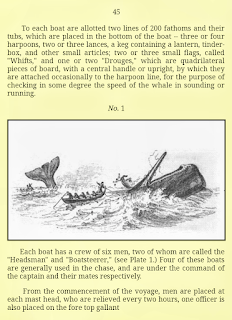Melville's Benito Cereno: The Knot
Captain Delano crossed over to him, and stood in silence surveying the knot; his mind, by a not uncongenial transition, passing from its own entanglements to those of the hemp. For intricacy, such a knot he had never seen in an American ship, nor indeed any other. The old man looked like an Egyptian priest, making Gordian knots for the temple of Ammon. The knot seemed a combination of double-bowline-knot, treble-crown-knot, back-handed-well-knot, knot-in-and-out-knot, and jamming-knot. At last, puzzled to comprehend the meaning of such a knot, Captain Delano addressed the knotter: — "What are you knotting there, my man?" "The knot," was the brief reply, without looking up. "So it seems; but what is it for?" "For some one else to undo," muttered back the old man, plying his fingers harder than ever, the knot being now nearly completed.
